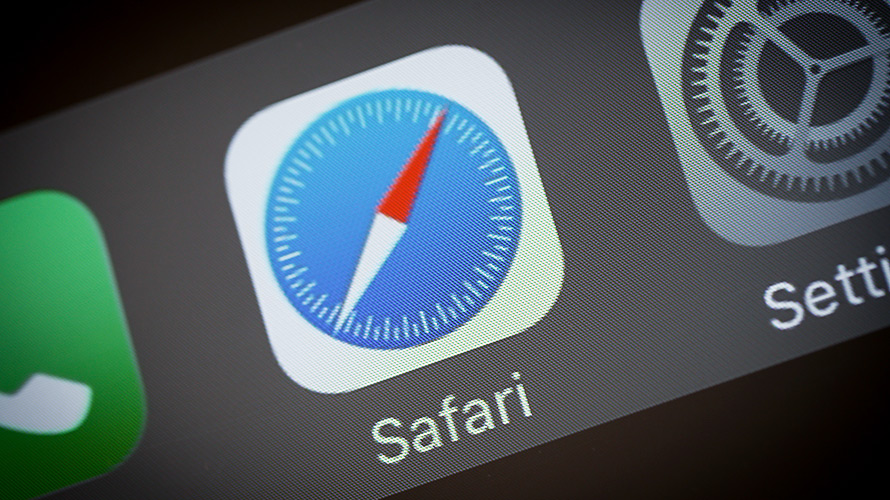In a stunning turn of events, Apple has lifted its ban on Fortnite in the European Union, marking a monumental victory for Epic Games. The decision comes after an intense legal battle between Game On and Apple, which has been closely followed by gamers and industry experts alike.
The ban was imposed by Apple due to a violation of its App Store guidelines and in-app payment rules by Epic Games. The company sparked controversy when it introduced its own in-app payment system, bypassing Apple’s 30% commission. This move led Apple to remove Fortnite from its App Store, thereby blocking access to millions of iOS users.
The reinstatement of Fortnite on iPhones is a significant moment for both Epic Games and its loyal fan base. With Apple’s revised policies and changes in App Store guidelines, the future of in-app payments and app development is set to experience a significant shift.
Players can now once again immerse themselves in the popular battle royale game, enjoying seamless gameplay on their iOS devices. This epic victory not only brings relief to Fortnite fans but also sets a precedent for other developers and their ongoing relationship with the Apple App Store.
As we explore the changes in App Store guidelines and in-app payment rules, it’s clear that this victory is far-reaching. The game-changing decision by Apple signifies a potential turning point in the app ecosystem and the way developers interact with the platform.
What lies ahead for the future of the App Store and gaming industry is still uncertain. However, one thing is for sure: this landmark victory by Epic Games has forever altered the landscape of mobile gaming and set the stage for a new era of collaboration and innovation between developers and platforms.
The Battle Begins: Epic Games vs Apple
In the world of mobile gaming, a fierce legal battle has unfolded between two industry giants: Epic Games and Apple. At the heart of the dispute lies the Apple App Store and its guidelines, which have long been a subject of scrutiny and debate.
Epic Games, the developer behind the wildly popular game Fortnite, took on Apple in a high-stakes lawsuit, challenging the tech giant’s control over the App Store ecosystem. The lawsuit centers around Apple’s alleged anti-competitive practices and unfair app distribution policies.
“We believe that Apple’s strict guidelines and excessive fees limit user choice and stifle innovation in the gaming industry,” stated Tim Sweeney, CEO of Epic Games.
The allegations made by Epic Games strike at the core of the App Store’s guidelines, which are designed to ensure a level playing field for all developers. Epic Games argues that Apple’s control over in-app purchases and the mandatory use of Apple’s payment system create a monopoly-like environment, restricting fair competition and innovation.
The lawsuit has wide-ranging implications for not only Epic Games but also other developers and the entire app ecosystem. If successful, it could lead to significant changes in the way the App Store operates and how developers distribute their apps on iOS devices.
The Impact on App Store Guidelines
At the heart of the legal battle are the App Store guidelines, which dictate the rules and regulations for all apps available on the platform. These guidelines have long been criticized for their strict nature and the control they give Apple over developers.
The outcome of the lawsuit could have a profound impact on the future of these guidelines. If Epic Games prevails, it could prompt Apple to revise its policies, potentially opening the door for more flexible app distribution and payment options.
The Future of the Apple App Store
Regardless of the lawsuit’s outcome, the legal battle between Epic Games and Apple has ignited a broader discussion about the power and influence of tech giants over the app economy.
Table: A Comparison of Epic Games and Apple’s Arguments
| Epic Games | Apple |
|---|---|
| Alleges anti-competitive practices and unfair app distribution policies | Maintains that strict guidelines ensure a secure and reliable app ecosystem |
| Challenges Apple’s control over in-app purchases and mandates the use of Apple’s payment system | Argues that these policies protect user privacy and ensure seamless user experience |
| Claims Apple’s policies limit user choice and stifle innovation in the gaming industry | Emphasizes the need for consistent rules and guidelines to maintain a trusted app platform |
As the legal battle continues, the gaming and app development community eagerly awaits a resolution that will shape the future of the Apple App Store and potentially pave the way for a more open and competitive app ecosystem.
Changes in App Store Guidelines and In-App Payment Rules
Following the legal battle between Epic Games and Apple, the App Store guidelines and in-app payment rules underwent significant changes. These policy revisions aim to address the concerns raised by developers and create a more transparent and fair ecosystem for both app creators and users.
One of the key changes in the App Store guidelines is the introduction of alternative payment options for app developers. Previously, Apple mandated that all in-app purchases must go through the App Store’s payment system, which resulted in a 30% commission for Apple. However, with the new guidelines, developers can now offer alternative payment methods within their apps.
This update allows developers to bypass the App Store’s payment system and reduce their dependency on Apple’s platform for financial transactions. It brings more flexibility to app creators and provides them with a greater degree of control over monetization strategies.
“The changes in App Store guidelines are a positive step towards a more open and competitive environment for developers. It allows us to explore different business models and better serve our users.” – Mark Johnson, CEO of App Development Inc.
Furthermore, Apple has also modified its policies regarding app review guidelines. The new guidelines provide clearer instructions and explanations, making it easier for developers to understand what is expected of them during the review process. This increased transparency helps to avoid unnecessary delays and frustrations for app creators, ensuring a smoother and more efficient workflow.
As part of the app review process, Apple has also pledged to provide more detailed feedback to developers when their apps are rejected. This feedback will include actionable suggestions and guidance to help developers address any potential issues and resubmit their apps with the necessary improvements, reducing the chances of repeated rejections.
The changes in App Store guidelines and in-app payment rules reflect Apple’s commitment to continuously improve its policies and address the concerns of its developer community. These updates promote a more inclusive and fair app marketplace, fostering innovation and enabling a wider range of monetization strategies.
The Impact of Policy Changes
The revised App Store guidelines and in-app payment rules have sparked discussions within the app development community. While some developers welcome the changes as a step towards a more level playing field, others have raised concerns about potential challenges and the need for further adjustments.
On one hand, the introduction of alternative payment options provides developers with more freedom and control over their revenue streams. They can explore different business models, such as subscriptions or one-time fees, outside of the App Store’s payment system. This opens up new possibilities for monetization and allows developers to establish direct relationships with their customers.
However, there are concerns that the shift towards alternative payment methods may lead to fragmentation within the app ecosystem. App developers now have to manage their own payment infrastructure, which may involve additional costs and complexities. Additionally, maintaining consistency across different platforms and ensuring secure transactions can pose significant challenges for smaller developers with limited resources.
The impact on app users is also worth considering. While the changes in App Store guidelines aim to promote a more competitive environment and potentially lower prices for consumers, some developers may choose to increase prices outside of the App Store’s payment system to compensate for the commission they no longer have to pay. This shift could result in varying prices for the same app depending on the chosen payment method, potentially confusing users and affecting their purchasing decisions.

Despite these concerns, the changes in App Store guidelines and in-app payment rules represent a significant step towards a more transparent and equitable app ecosystem. Apple’s commitment to continuously improve its policies demonstrates an understanding of the evolving needs of developers and the importance of fostering innovation while maintaining a fair marketplace for all stakeholders.
Epic Victory: Fortnite Reinstated on iOS
After a long and highly publicized legal battle between Epic Games and Apple, Fortnite fans can finally rejoice as the ban on the popular game has been lifted in the European Union. This epic victory marks a significant turning point in the ongoing dispute between the two tech giants.
Following a courtroom showdown and months of legal wrangling, Apple has decided to reinstate Fortnite on its App Store, allowing iOS users to once again dive into the action-packed world of the popular battle royale game. This decision comes as a major win for Epic Games, the creators of Fortnite, and serves as a validation of their fight against Apple’s App Store policies.
The lifting of the ban has generated immense excitement among Fortnite players who have eagerly been awaiting the game’s return on their iPhones. With the reinstatement of Fortnite, players can once again join their friends in intense battles, build towering structures, and showcase their skills on the virtual battlefield.
This victory provides a glimpse into the evolving landscape of app store policies and the influence that game developers hold in shaping the rules of the digital gaming industry. It sets an important precedent for future disputes between app developers and app store platforms, and raises questions about the power dynamics between these stakeholders.
As Fortnite finds its way back onto iOS devices, it represents not only a triumph for Epic Games but also a significant milestone in the ongoing dialogue around app store guidelines, in-app payment rules, and fair competition in the digital market.

The Impact on Gaming and the Digital Marketplace
With Fortnite’s reinstatement, the gaming community can look forward to diving back into the battle royale phenomenon on their iOS devices. This victory for Epic Games underscores the importance of healthy competition within the gaming industry, as well as the need for transparent and fair app store policies.
As other game developers and app creators closely observe the outcome of the Epic Games versus Apple battle, it is likely that this victory will embolden others to challenge app store guidelines and push for more equitable practices. The decision may serve as a catalyst for change, driving app stores to reassess their policies and consider the impact on developers and users.
The reinstatement of Fortnite on iOS demonstrates the power of collective action and the ability of developers to shape the future of the digital marketplace. It also highlights the growing significance of app store policies in the gaming industry and the need for ongoing dialogue and collaboration between developers and app store platforms.
Exploring the App Store Policy Changes
In the wake of the lawsuit between Epic Games and Apple, significant changes have been made to the App Store policies that govern the app ecosystem. These policy changes have far-reaching implications for developers, in-app payment rules, and the overall landscape of the app industry.
One of the key aspects of the App Store policy changes is the heightened scrutiny on in-app purchases and payment systems.
The revised policies also aim to create a level playing field for developers by encouraging competition and innovation. By allowing developers to communicate directly with their users about alternative payment options, Apple has taken a step towards fostering a more open and competitive app market.
The App Store policy changes have not been without controversy, with some developers expressing concerns about the potential impact on their revenue streams. However, Apple has asserted that these changes are necessary to ensure a safe and trusted platform for both developers and users alike.
The Future of In-App Payment Rules
With the App Store policy changes, the future of in-app payment rules hangs in the balance.
The new policies have opened up possibilities for developers to explore different payment models, providing them with more flexibility and control over their monetization strategies. This could lead to a shift in the app landscape, with developers exploring new ways to drive revenue and enhance the user experience.
However, the future of in-app payment rules also depends on how other major app platforms respond to these changes. Will they follow Apple’s lead and adopt similar policies, or will they take a different approach? The evolving landscape of in-app payments will undoubtedly shape the future of the app industry as a whole.
The Broader Impact on the App Ecosystem
The App Store policy changes implemented by Apple have the potential to reshape the entire app ecosystem. From the way developers monetize their apps to the level of competition in the market, these changes will have far-reaching consequences.
By allowing developers to communicate directly with users about alternative payment options, Apple is empowering developers to take control of their monetization strategies and build stronger relationships with their user base. This could lead to a more diverse range of apps and payment models, fostering innovation and providing users with more choices.
Additionally, the increased focus on transparency and fairness in the App Store policies may enhance user trust and confidence in the platform. Users can have greater peace of mind knowing that developers are abiding by clear guidelines and that they have the option to choose alternative payment methods.
Overall, the App Store policy changes mark a significant shift in the app industry. As these policies evolve and other platforms respond, the app landscape will continue to transform, offering new opportunities and challenges for developers and users alike.
Frequently Asked Questions
Game On: What led to the ban of Fortnite on iPhones in the EU?
Epic Games had violated the App Store guidelines by implementing its own in-app payment system, bypassing Apple’s payment system, which led to the ban.
Game On: eWhat were the changes in App Store guidelines and in-app payment rules?
In response to the lawsuit, Apple made changes to its App Store guidelines and in-app payment rules. Developers are now allowed to inform users about alternative payment methods, and they can also offer external links to make purchases outside of the App Store.
How did the reinstatement of Fortnite on iOS devices happen?
Epic Games made some compromises by complying with the App Store guidelines and implementing Apple’s in-app payment system. This led to the reinstatement of the game on iPhones in the EU.
Game On: What are the implications of the App Store policy changes?
The App Store policy changes have implications for both developers and app users. Developers now have more flexibility to communicate and offer alternative payment methods, while users have the option to make purchases outside of the App Store ecosystem.
How will the Epic Game On lawsuit and App Store changes impact the future of gaming?
The outcome of the Epic Games lawsuit and the changes in App Store guidelines have the potential to reshape the gaming industry. These developments may lead to increased competition, better payment options for developers, and a shift in the power dynamics between Apple and other developers.
For more informations: https://www.globalvillagespace.com/tech/apple-lifts-ban-on-epic-games-allowing-fortnite-on-iphone-in-eu/











